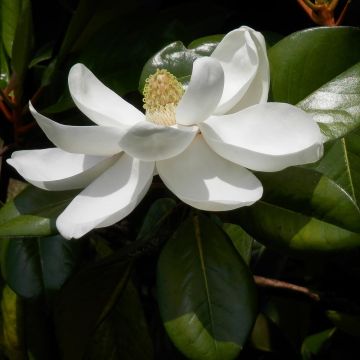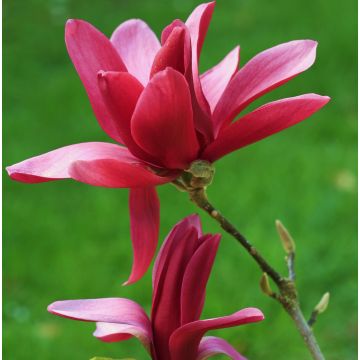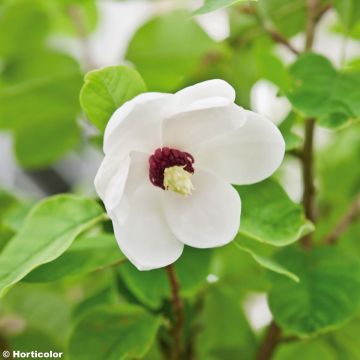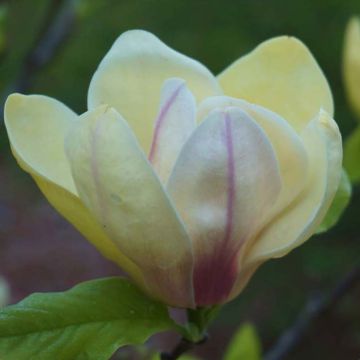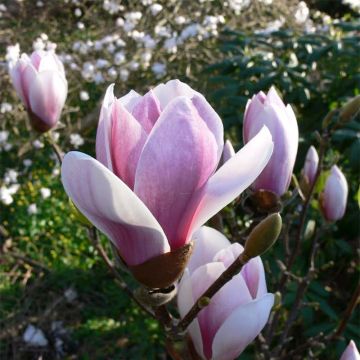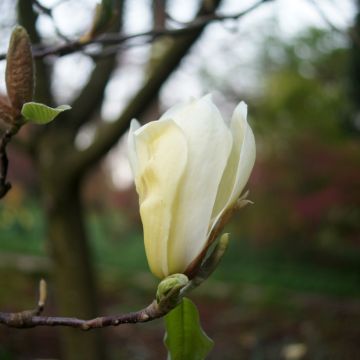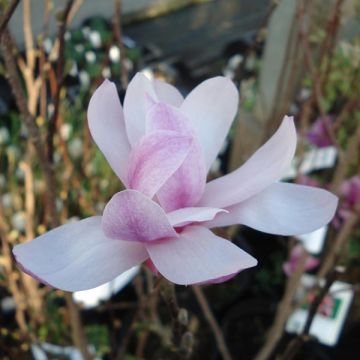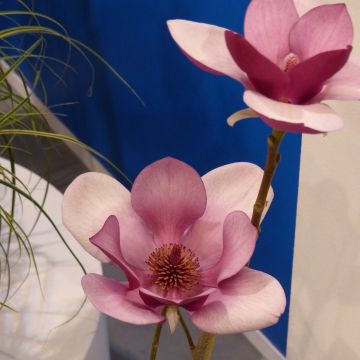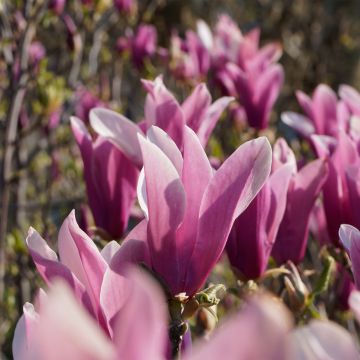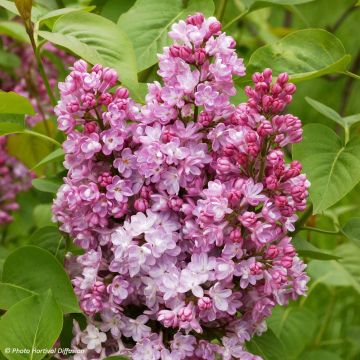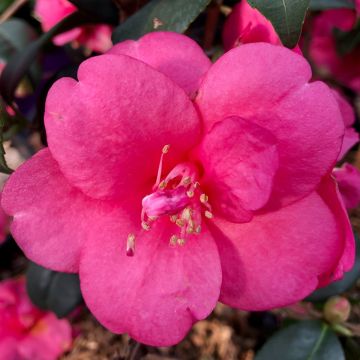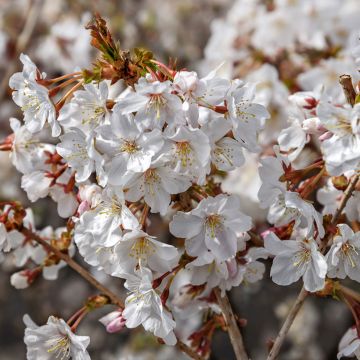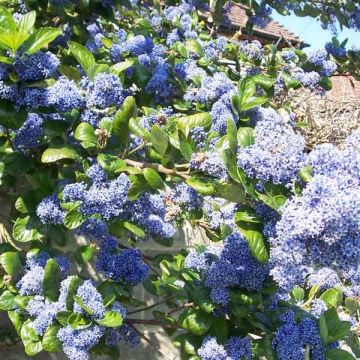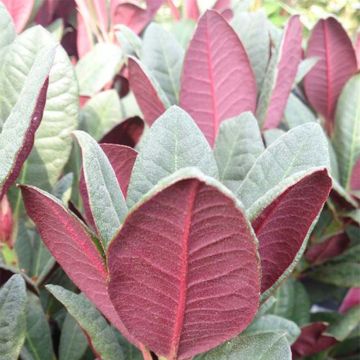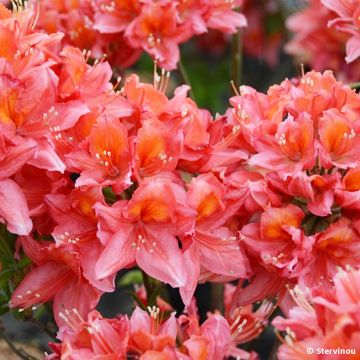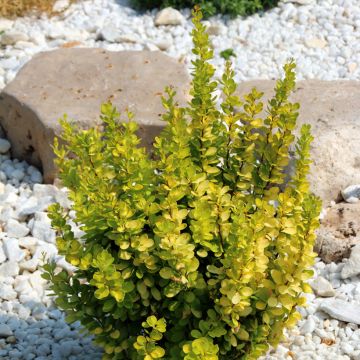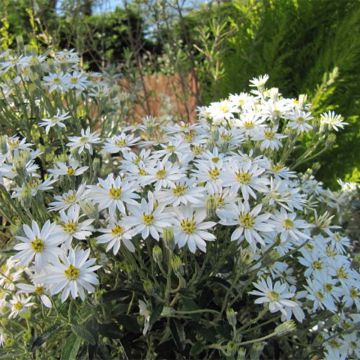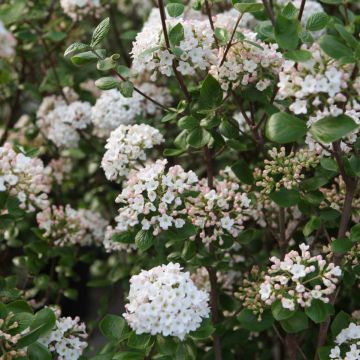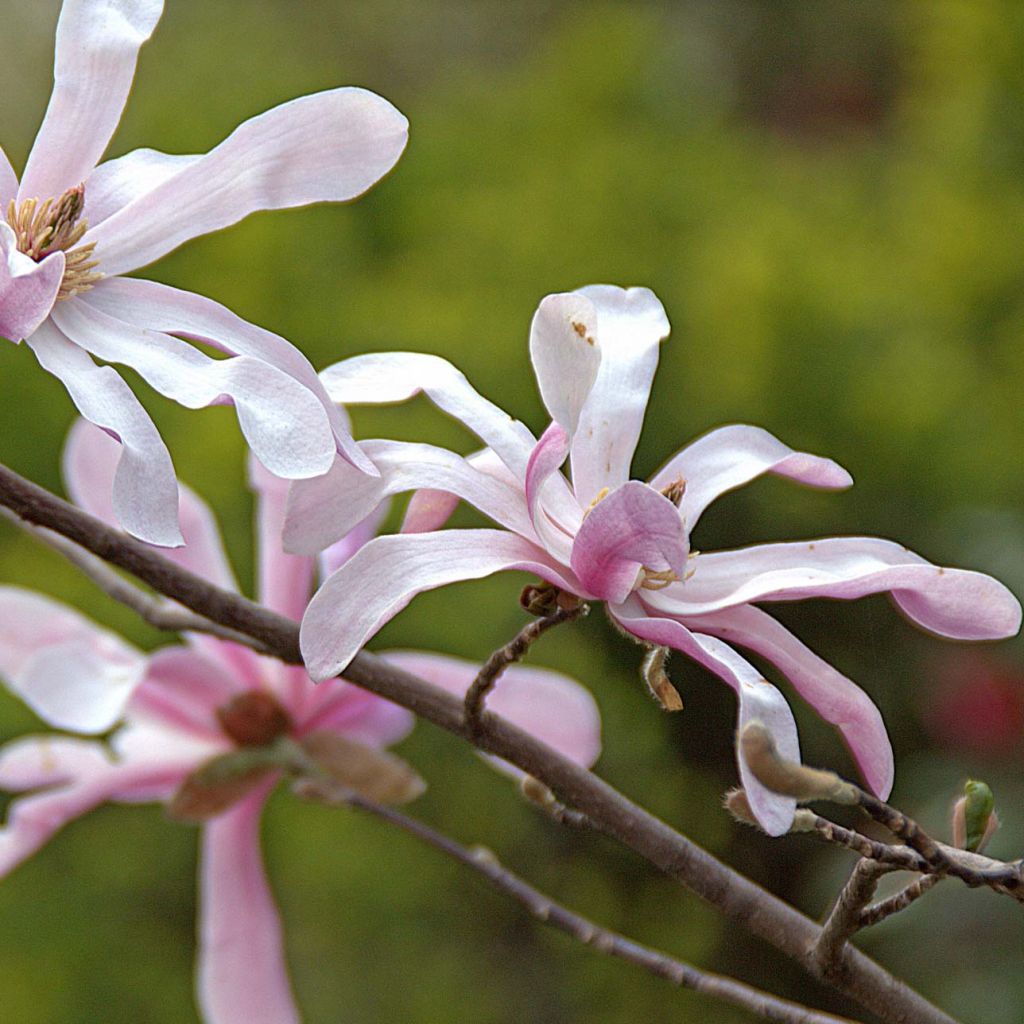

Magnolia x loebneri Merrill
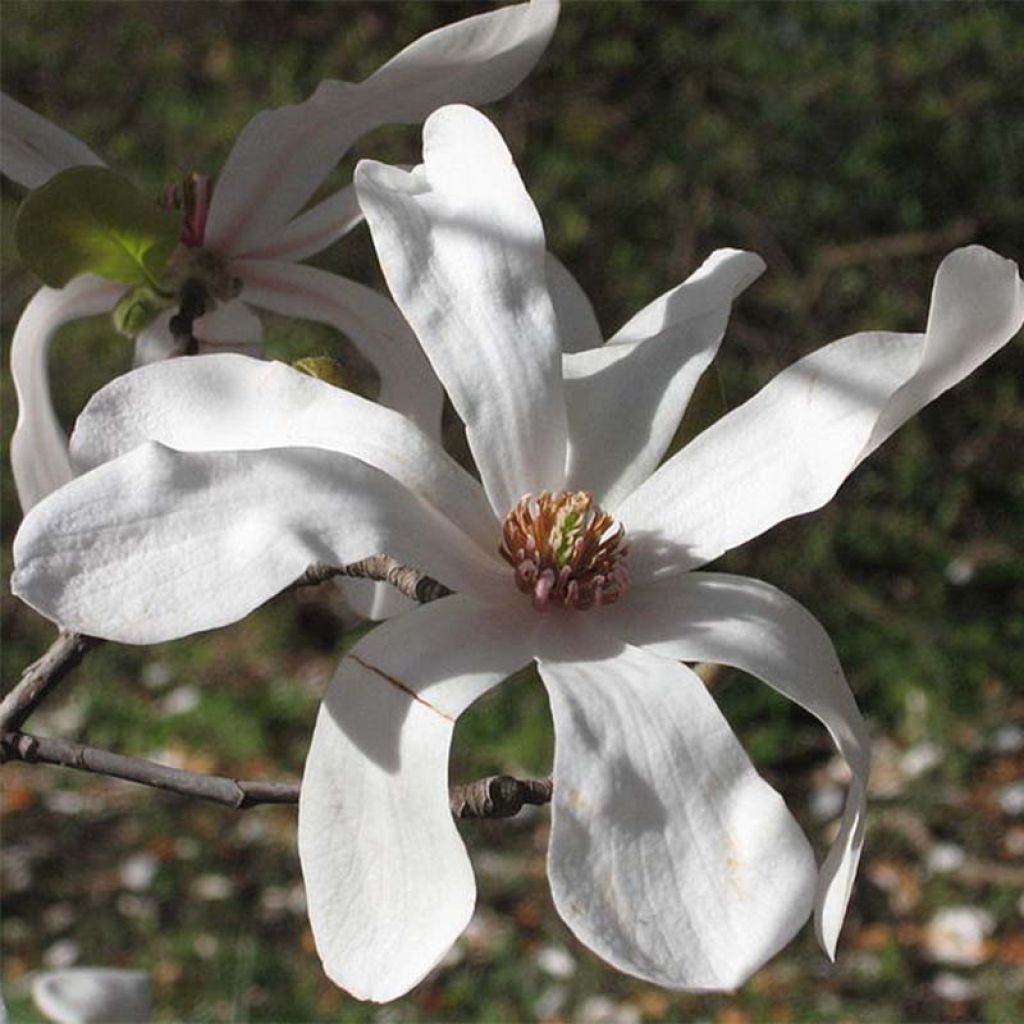

Magnolia x loebneri Merrill
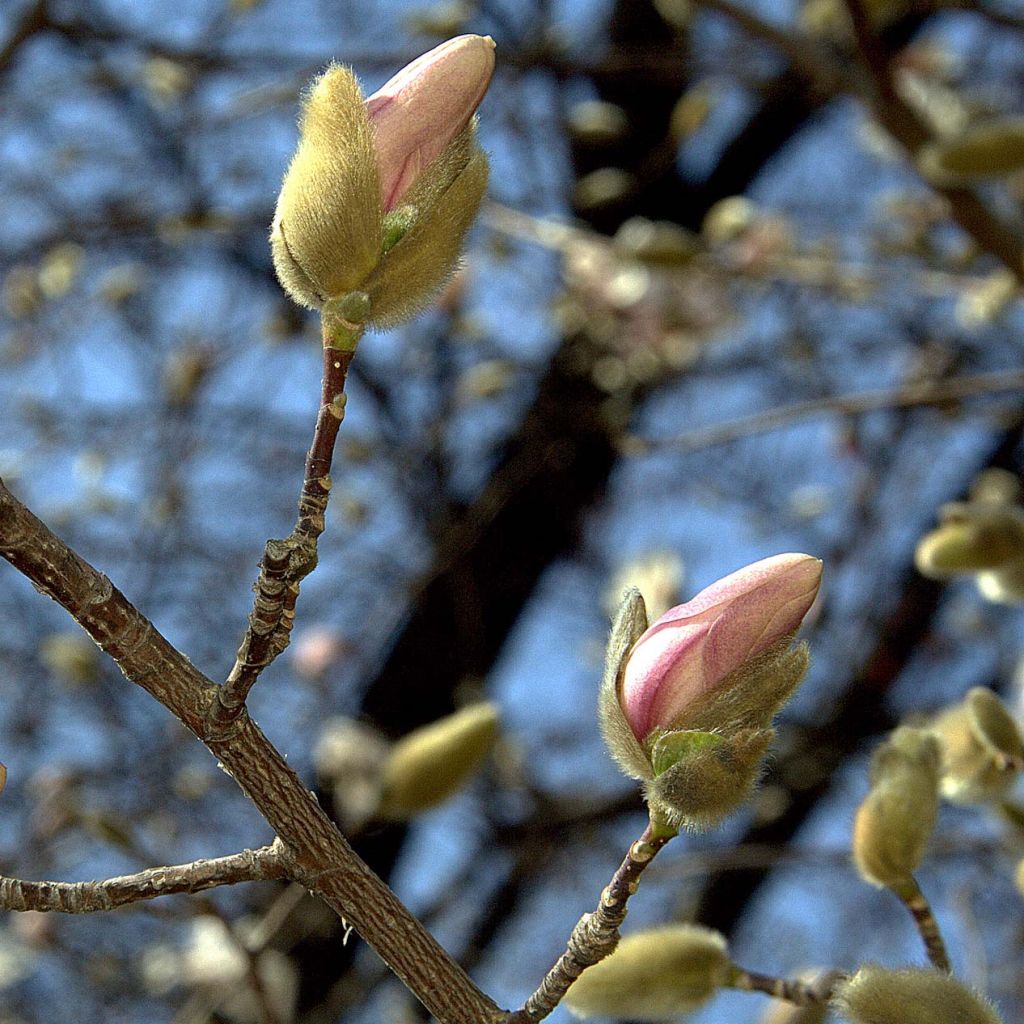

Magnolia x loebneri Merrill
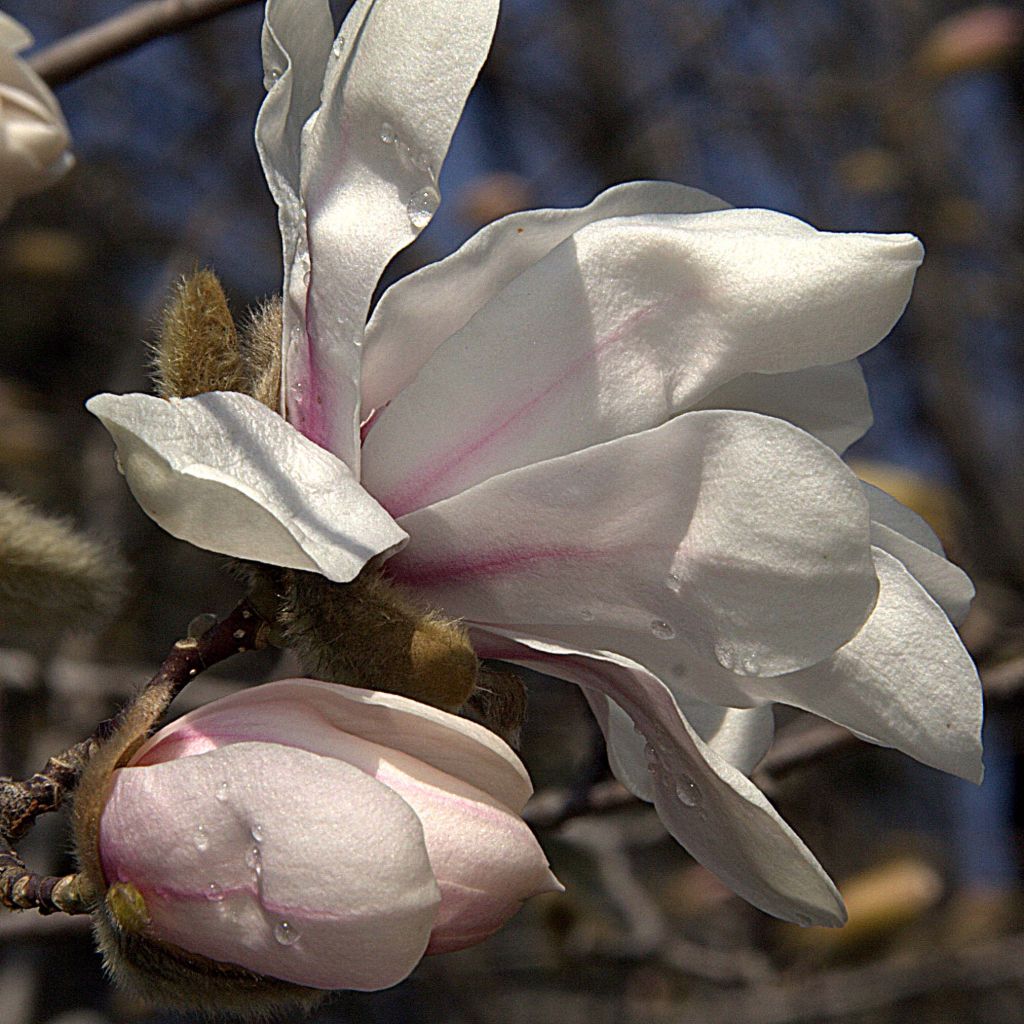

Magnolia x loebneri Merrill
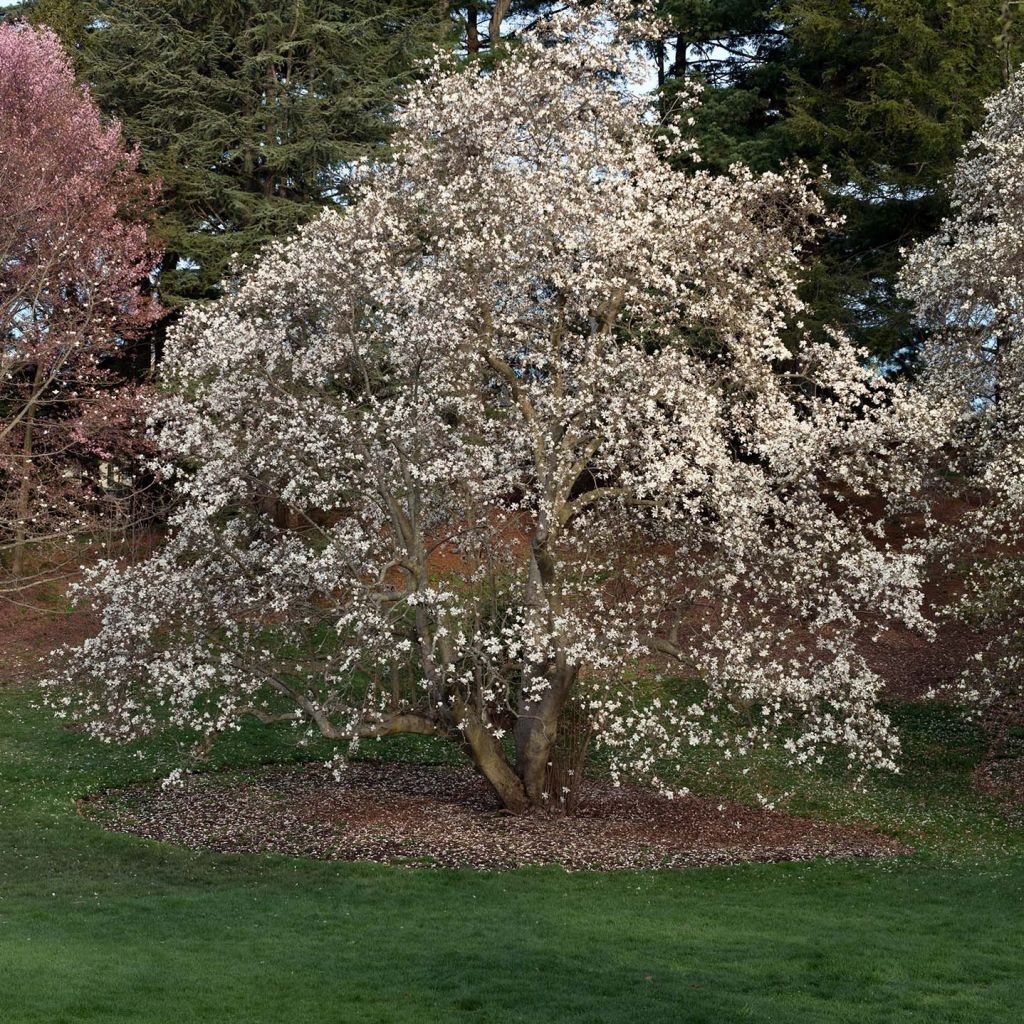

Magnolia x loebneri Merrill
Magnolia x loebneri Merrill
Magnolia x loebneri Merrill
Magnolia
This item cannot be shipped to the selected country
Delivery charge from €5.90
Oversize package delivery charge from €6.90
Delivery to Corse prohibited
More information
Schedule delivery date,
and select date in basket
This plant carries a 24 months recovery warranty
More information
We guarantee the quality of our plants for a full growing cycle, and will replace at our expense any plant that fails to recover under normal climatic and planting conditions.
From €5.90 for pickup delivery and €6.90 for home delivery
Express home delivery from €8.90.
Oversize package: home delivery by special carrier from €6.90 per order..
Express home delivery from €8.90.
Delivery to Corse prohibited: UE law prohibits the import of this plant from mainland France to Corse as part of the fight against Xylella fastidiosa. Please accept our sincere apologies.
More information

Does this plant fit my garden?
Set up your Plantfit profile →
Description
Magnolia x loebneri 'Merrill' is a small deciduous tree that is quite accommodating, hardy and very floriferous in early spring. Its large white flowers open in the shape of a cup, then unfold into wide stars along the bare branches, as if covered in huge snowflakes. They emit a subtle lemony fragrance, which can be perceived close to their large stars. Pleasant in autumn, the small tree takes on a beautiful golden hue before the leaves fall. Like all loebneri hybrid magnolias, this variety blooms as soon as the plant reaches 1m (3ft 4in) in height and proves to be easier to grow in many regions.
Magnolia x loebneri, from the magnolia family, is a horticultural hybrid obtained by cross-breeding M. stellata, undoubtedly the most floriferous of the genus, and M. kobus, of good composition, both of which are Japanese and show slow growth and moderate development. The 'Merrill' cultivar has the upright habit of its second parent and the star-shaped flowers of M. stellata. It is a small tree with an erect habit in its youth, widening over time due to its flexible and slightly trailing branches, becoming as tall as it is wide. Its growth is quite slow, reaching an average maturity of 6m (19ft 8in) in all directions. It is possible to grow it as a bush or as a many-stemmed or single-trunk small tree. The flowering takes place before the appearance of the leaves, in March-April depending on the regions. The 10 to 15cm (3.9 to 5.9in) diameter flowers are abundantly produced. They are slightly fragrant, white, composed of about fifteen spatulate petals, quite wide. The outer petals are striated with a very pale pink to light violet, which can give the whole flower a very pale pink colour. The flowers as well as the flower buds are less sensitive to late frost than other magnolias. Magnolia 'Merrill' produces the largest flowers of all M. x loebneri. The slender branches bear deciduous foliage of a rather dark green, turning golden in autumn. The leaves measure from 10 to 15cm (3.9 to 5.9in) in length.
With its origins in Japan, Magnolia x loebneri is very hardy. Plant it alone in your garden or in the company of evergreen shrubs such as Rhododendrons, Camellias and Azaleas if your soil is acidic, or with Viburnums, Forsythias, Japanese Quinces and Lilacs in slightly neutral to slightly chalky soil. In a Japanese-style garden, combine it with Ilex crenata trimmed into clouds. Owners of large gardens can plant a group of 3 subjects not far from a pathway, their mass of white flowers will create a striking tableau in spring! Loebneri magnolias are particularly highlighted against a dark background such as a hedge of yews or Thuja. The combination of a Garrya elliptica 'James Roof', adorned with silky catkins, and the Magnolia 'Merrill' covered in large stars should create a magical scene in March, if the beginning of spring is mild.
Report an error about the product description
Magnolia x loebneri Merrill in pictures
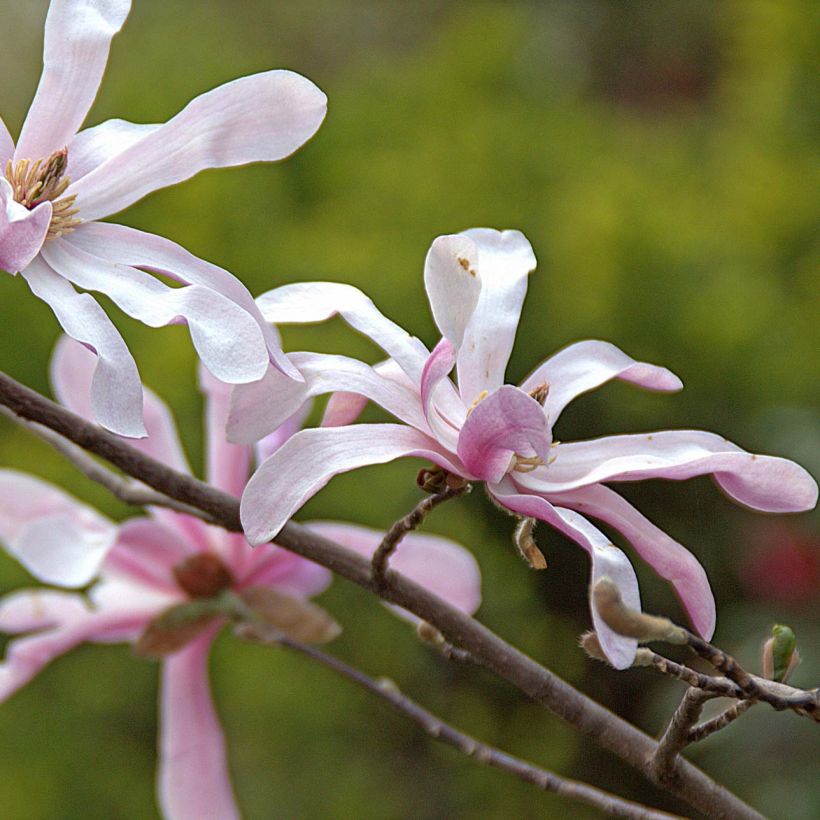

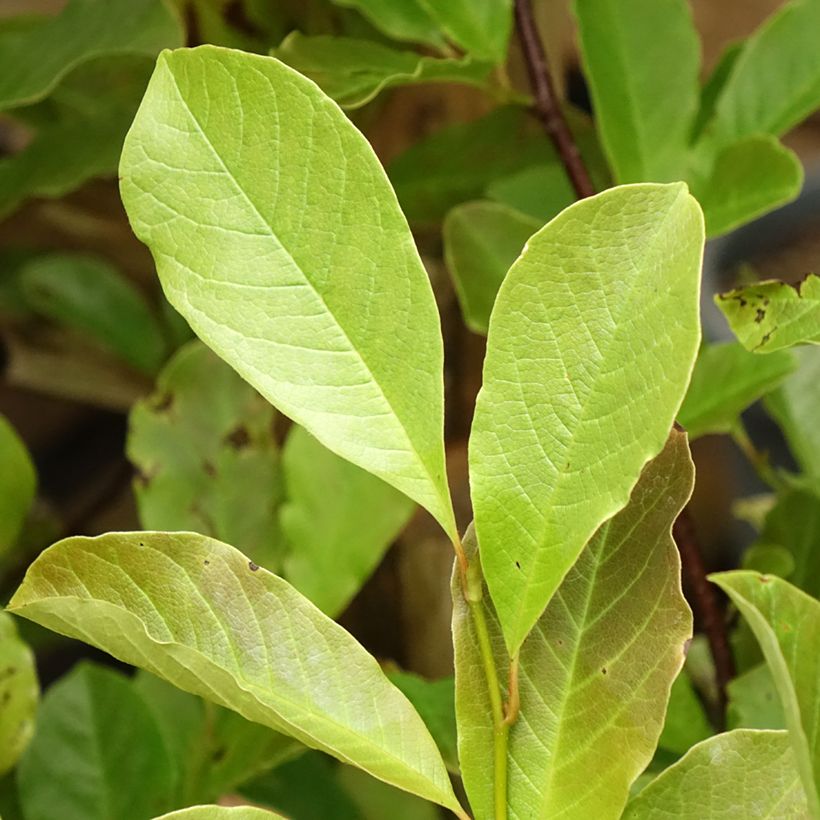

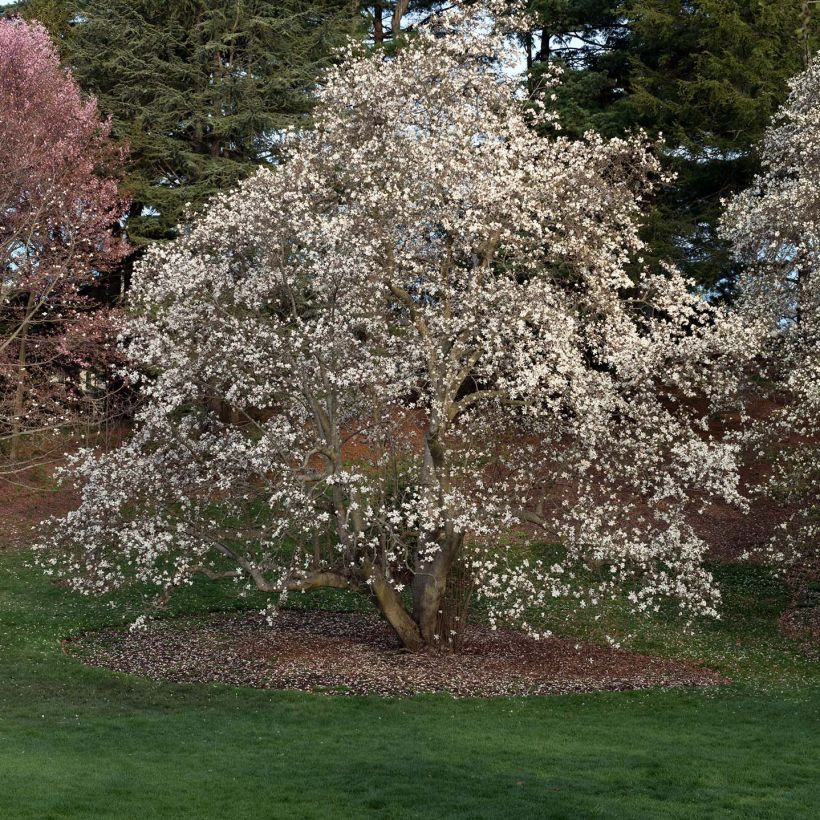

Plant habit
Flowering
Foliage
Botanical data
Magnolia
x loebneri
Merrill
Magnoliaceae
Magnolia
Cultivar or hybrid
Other Magnolia
Planting and care
Magnolia x loebneri 'Merrill' needs a few hours of direct sunlight, so grow it in the sun or in partial shade but not in total shade. Keep it sheltered from cold winds. Plant it in a cool, rich, deep, well-drained and preferably neutral soil, with pure heather soil, low in nutrients, being discouraged. In limestone soil, dig a large planting hole and add heather soil mixed with your garden soil. This Magnolia x loebneri is less sensitive to limestone than many other magnolias. Mulch the bush to prevent it from freezing during heavy spring frosts, especially young plants. Water it in case of drought. As it grows, watering by rain will be sufficient. From February to June, before vegetation starts, remove dead or diseased wood as well as branches that cross each other. Prune it little by little to give it its shape, with branches growing from the base of the plant.
Planting period
Intended location
Care
-
, onOrder confirmed
Reply from on Promesse de fleurs
Spring-flowering shrubs
Haven't found what you were looking for?
Hardiness is the lowest winter temperature a plant can endure without suffering serious damage or even dying. However, hardiness is affected by location (a sheltered area, such as a patio), protection (winter cover) and soil type (hardiness is improved by well-drained soil).

Photo Sharing Terms & Conditions
In order to encourage gardeners to interact and share their experiences, Promesse de fleurs offers various media enabling content to be uploaded onto its Site - in particular via the ‘Photo sharing’ module.
The User agrees to refrain from:
- Posting any content that is illegal, prejudicial, insulting, racist, inciteful to hatred, revisionist, contrary to public decency, that infringes on privacy or on the privacy rights of third parties, in particular the publicity rights of persons and goods, intellectual property rights, or the right to privacy.
- Submitting content on behalf of a third party;
- Impersonate the identity of a third party and/or publish any personal information about a third party;
In general, the User undertakes to refrain from any unethical behaviour.
All Content (in particular text, comments, files, images, photos, videos, creative works, etc.), which may be subject to property or intellectual property rights, image or other private rights, shall remain the property of the User, subject to the limited rights granted by the terms of the licence granted by Promesse de fleurs as stated below. Users are at liberty to publish or not to publish such Content on the Site, notably via the ‘Photo Sharing’ facility, and accept that this Content shall be made public and freely accessible, notably on the Internet.
Users further acknowledge, undertake to have ,and guarantee that they hold all necessary rights and permissions to publish such material on the Site, in particular with regard to the legislation in force pertaining to any privacy, property, intellectual property, image, or contractual rights, or rights of any other nature. By publishing such Content on the Site, Users acknowledge accepting full liability as publishers of the Content within the meaning of the law, and grant Promesse de fleurs, free of charge, an inclusive, worldwide licence for the said Content for the entire duration of its publication, including all reproduction, representation, up/downloading, displaying, performing, transmission, and storage rights.
Users also grant permission for their name to be linked to the Content and accept that this link may not always be made available.
By engaging in posting material, Users consent to their Content becoming automatically accessible on the Internet, in particular on other sites and/or blogs and/or web pages of the Promesse de fleurs site, including in particular social pages and the Promesse de fleurs catalogue.
Users may secure the removal of entrusted content free of charge by issuing a simple request via our contact form.
The flowering period indicated on our website applies to countries and regions located in USDA zone 8 (France, the United Kingdom, Ireland, the Netherlands, etc.)
It will vary according to where you live:
- In zones 9 to 10 (Italy, Spain, Greece, etc.), flowering will occur about 2 to 4 weeks earlier.
- In zones 6 to 7 (Germany, Poland, Slovenia, and lower mountainous regions), flowering will be delayed by 2 to 3 weeks.
- In zone 5 (Central Europe, Scandinavia), blooming will be delayed by 3 to 5 weeks.
In temperate climates, pruning of spring-flowering shrubs (forsythia, spireas, etc.) should be done just after flowering.
Pruning of summer-flowering shrubs (Indian Lilac, Perovskia, etc.) can be done in winter or spring.
In cold regions as well as with frost-sensitive plants, avoid pruning too early when severe frosts may still occur.
The planting period indicated on our website applies to countries and regions located in USDA zone 8 (France, United Kingdom, Ireland, Netherlands).
It will vary according to where you live:
- In Mediterranean zones (Marseille, Madrid, Milan, etc.), autumn and winter are the best planting periods.
- In continental zones (Strasbourg, Munich, Vienna, etc.), delay planting by 2 to 3 weeks in spring and bring it forward by 2 to 4 weeks in autumn.
- In mountainous regions (the Alps, Pyrenees, Carpathians, etc.), it is best to plant in late spring (May-June) or late summer (August-September).
The harvesting period indicated on our website applies to countries and regions in USDA zone 8 (France, England, Ireland, the Netherlands).
In colder areas (Scandinavia, Poland, Austria...) fruit and vegetable harvests are likely to be delayed by 3-4 weeks.
In warmer areas (Italy, Spain, Greece, etc.), harvesting will probably take place earlier, depending on weather conditions.
The sowing periods indicated on our website apply to countries and regions within USDA Zone 8 (France, UK, Ireland, Netherlands).
In colder areas (Scandinavia, Poland, Austria...), delay any outdoor sowing by 3-4 weeks, or sow under glass.
In warmer climes (Italy, Spain, Greece, etc.), bring outdoor sowing forward by a few weeks.

































